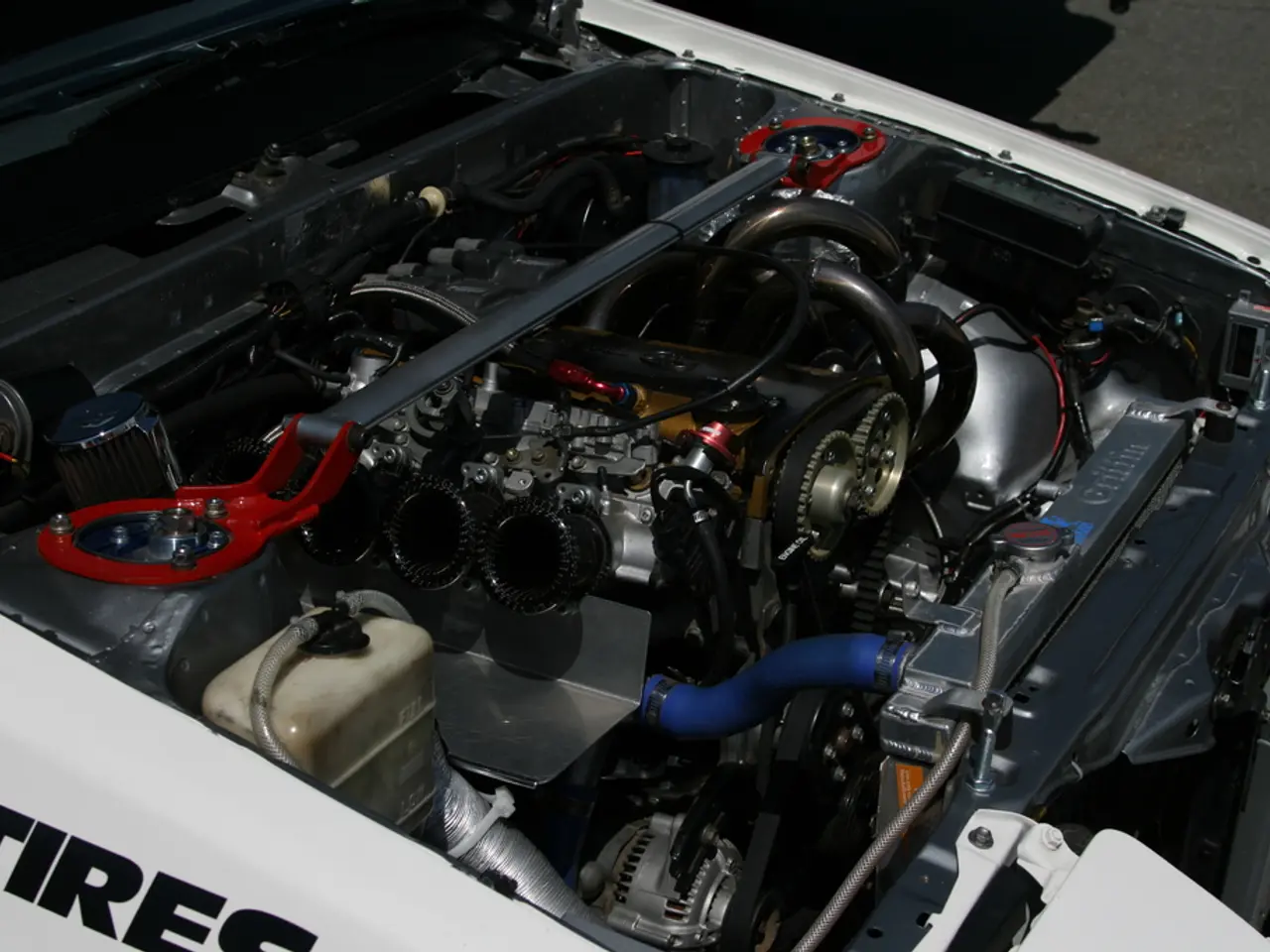"Sodium-ion battery chemistry advancement yields provisional patent filing by Macsen Labs, paving way towards large-scale manufacturing"
Macsen Labs, a company founded in 1952 as a manufacturer of APIs, dyes, and specialty chemicals, has announced a significant breakthrough in Sodium-Ion battery technology. The company has developed a proprietary Sodium-Ion battery technology using Prussian White as the cathode material, achieving an energy density exceeding 150 mAh/g, comparable to Lithium Iron Phosphate (LFP) batteries.
Current Development Status
Macsen has successfully R&D-scale synthesized and optimized Prussian White for sodium-ion batteries at its electrochemistry and battery R&D facility. The company has filed a provisional patent protecting its novel synthesis approach and is progressing from R&D to pilot-scale manufacturing and cell chemistry optimization. Additionally, Macsen Energy, a dedicated unit, has been established to scale and commercialize sodium-ion energy storage systems.
Technical and Cost Advantages
One of the key advantages of Macsen's technology is the use of aluminium as the cathode current collector instead of copper, lowering material cost. The technology also employs low-cost, abundant, and non-toxic elements without relying on rare earths or cobalt, making it sustainable and geopolitically secure. Moreover, it is compatible with existing lithium battery production infrastructure, reducing capital expenditure for manufacturers.
Potential Impact
Macsen's technology targets not only electric vehicles but is particularly promising for stationary energy storage systems to support grid resiliency and renewable integration. The company aims to offer a scalable, indigenous energy storage solution aimed at fostering energy independence and resilience, especially for emerging markets like India. The technology could disrupt the current lithium-ion battery market by providing a lower-cost and safer alternative with comparable performance metrics.
Macsen is setting up a pilot-scale cell fabrication line to demonstrate the performance of Prussian White in commercial large-format cells. The company's CEO, Mr. Achal Agrawal, emphasizes the potential of sodium-ion batteries for India's energy transition, particularly in building a truly indigenous, scalable, and affordable energy storage ecosystem.
The pilot-scale production facility for Prussian White is expected to be operational by early 2026. Macsen aims to develop economical form factors by innovatively combining low-cost battery materials, components, and manufacturing processes, especially for large-scale stationary energy storage.
Macsen Energy's focus lies primarily on stationary energy storage systems for renewable energy storage and management. The material, Prussian White, shows excellent stability, fast sodium-ion mobility due to its open crystalline structure, and compatibility with existing Li-ion cell manufacturing infrastructure.
The breakthrough involves the successful R&D-scale synthesis of a high-performance cathode material for Sodium-Ion batteries called Prussian White. Macsen's current Sodium-Ion battery technology, using Prussian White as cathode and hard carbon anode, is suitable for various applications including battery energy storage systems (BESS) for grid and solar, household backup and inverter systems, short-range EVs, auto-rickshaws, two-wheelers, city buses, rural microgrids, and energy access solutions.
In conclusion, Macsen Labs’ sodium-ion battery technology using Prussian White cathodes is at an advanced R&D stage, transitioning into pilot-scale manufacturing with strong commercial potential to impact both grid-scale and mobility energy storage markets through sustainable, cost-effective solutions.
Science and technology advancements at Macsen Labs, specifically in sodium-ion battery technology, have led to the development of a high-performance cathode material known as Prussian White. This breakthrough in science, combined with the technology employed, offers a sustainable and cost-effective alternative in the energy storage market.




